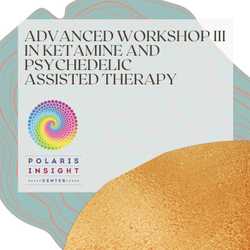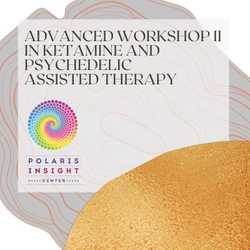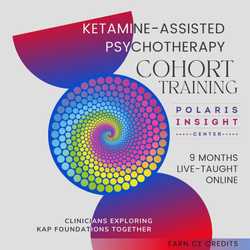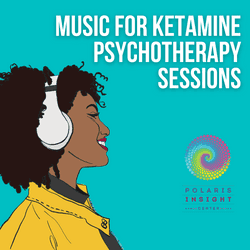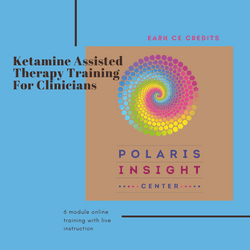Advanced Workshop I in Ketamine- and Psychedelic-Assisted Therapies
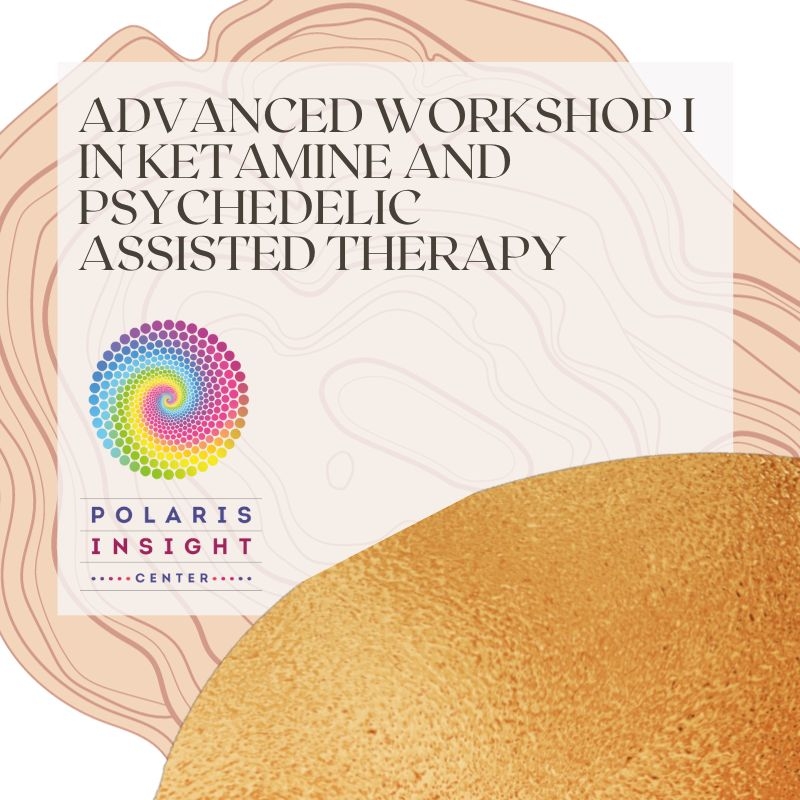
Advanced Workshop I in Ketamine- and Psychedelic-Assisted Therapies
$0.00
Training Description
Join Polaris Insight Center for an advanced workshop (module 6) on special topics in clinical work and the development of ketamine and other psychedelic-assisted psychotherapies. The training module integrates diverse clinical theories, traditions, and philosophies offering participants an increasingly wide-angle lens on the evolving field of psychedelic-assisted psychotherapy, grounding it in clinical wisdom, psychoanalytic and archetypal/Jungian theory, and mindful practices.
Teachings are appropriate for healthcare professionals as well as the general public. Healthcare professionals will be able to incorporate the tools and practices offered in this program in ways beneficial to clients or patients.
Polaris offers modules 1 to 5 ketamine therapy training series. Module 6 can be taken without completing the prior series.
All modules are taught live online through Zoom. Earn 8 hours of continuing education (CE).
Training Curriculum
Advanced Workshop I (Module 6) on Ketamine- and Psychedelic-Assisted Psychotherapies
In this advanced module, we focus on special topics in clinical work and the development of ketamine-assisted and other psychedelic-assisted psychotherapies. We cover the principles, practices and theory of depth therapies and their relationship with KAP: psychoanalytic, archetypal, transpersonal psychotherapy, developmental psychology, including an understanding of the relationship between key neurodevelopmental processes and the value and efficacy of KAP and psychedelic-assisted psychotherapy. In addition, we focus on challenges and opportunities in maximizing the healing potential of non-ordinary states of consciousness (NOSC) through the effective use of the therapeutic relationship; working with challenging experiences in treatment; the effective integration of spirituality and spiritual explorations as an essential element of the therapy; and the integration and recovery process through an understanding of Jung’s concept of the “transcendent function.”
We cover the important topic of psychedelic integration, involving extreme experiences in non-ordinary states of consciousness. We examine the effects on healing, personality, and spiritual development from periodic immersions in deep, transcendent -- sometimes inchoate and ineffable, and sometimes powerfully revealing and illuminating -- experiences of NOSC’s as well as their effects on individual and collective evolution. Finally, we discuss the theme of “potential space” and the role and recovery of the capacity for play and wonder as essential transformative elements in the healing and recovery process in KAP. We integrate diverse clinical theories, traditions, and philosophies, offering participants an increasingly wide-angle lens on the evolving field of psychedelic-assisted psychotherapy and grounding it in clinical wisdom, safety, and psychodynamic/archetypal theory and practices.
Teachings are appropriate for healthcare professionals as well as the general public. Healthcare professionals will be able to incorporate the tools and practices offered in this program in ways beneficial to clients or patients.
Learning Objectives
After completing this module, participants will be able to:
- Describe three elements of the theoretical approaches of Winnicott and elements as they may relate to the practice of psychedelic-assisted psychotherapy.
- Describe the relationship between therapist-client attunement and psychological change in psychedelic-assisted therapy and how it differs from traditional forms of psychotherapy.
- List two common psycho-spiritual themes that often arise in the practice of psychedelic-assisted psychotherapy.
- Discuss the differences between integrating individual psychedelic experiences and long-term integration.
- Discuss the neurobiological mechanisms of ketamine.
- Describe 3 different examples of symbolic representation of The Encounter with Self that may occur and inform ketamine-assisted psychotherapy.
Meet your Training Instructors:


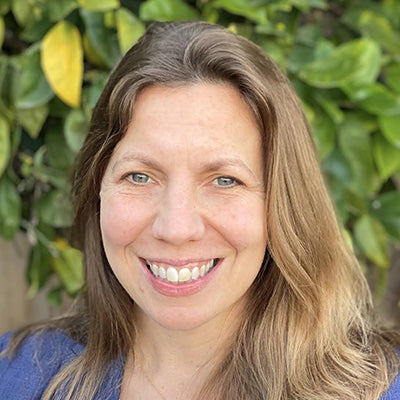



Extra Info
All modules are taught live online through Zoom. Earn 8 hours of continuing education (CE) - select CE option.
Date:
January 9, 2026
Time:
9 am - 5 pm Pacific Time
Target Audience:
This course is designed for mental health professionals – MDs, DOs, NDs, NPs, RNs, PsyDs, PhDs, LMFTs, LCSWs, LPCs, LEPs. Open to the public.
Accommodations:
To request accommodations for special needs, please email the program administrator at training@polarisinsight.com.
Cancellation Policy:
Participants need to cancel up to 2 weeks in advance to receive a 100% refund (minus a $25 admin fee and payment processing fee). If cancelled after the 2-weeks-in-advance period they can use the credit for a future training or receive 50% refund (minus a $25 admin fee and payment processing fee).
Certificate Information
Interested in the different certificate options for our courses? Read on to learn more:
Once you complete the course you will receive a Polaris Insight Center Certificate of Completion. Choose this option if you are not a licensed health provider and do not need continuing education credit for your professional degree.
Once you complete the course you will receive a Polaris Insight Center CE Certificate. Choose this option if you are a licensed health provider who would like continuing education credit for your professional degree.
- Be sure to select the CE credit option when purchasing the course.
- Upon completion of the course, you will receive a Certificate of Attendance for your credits.
- CE credits for psychologists are provided by Polaris Insight Center, an APA-approved CE sponsor.
- Polaris Insight Center is approved by the American Psychological Association to sponsor continuing education for psychologists. Polaris Insight Center maintains responsibility for this program and its content.
- The California Board of Behavioral Sciences accepts CE credits for LCSW, LPCC, LEP, and LMFT license renewal for programs offered by approved sponsors of CE by the American Psychological Association.
- LCSW, LPCC, LEP, and LMFTs, and other mental health professionals from states other than California need to check with their state licensing board as to whether or not they accept programs offered by approved sponsors of CE by the American Psychological Association.
- For questions about receiving your Certificate of Attendance, to request special accommodations, or report a grievance contact Psychedelic Support info@psychedelic.support.
